The Senate’s agriculture and forestry committee has been studying the effects of wildfires on the two sectors
REGINA — Cattle producers described the stress of evacuating cattle during a forest fire in recent testimony at the Senate agriculture committee. The committee wrapped up its study last week after hearing from a variety of witnesses in forestry and agriculture. Among those was Stacey Meunier from Meunier Livestock at Barrhead, Alta. She talked about […] Read moreNews

Researcher experiments with burying kochia
Agriculture Canada scientist looked at a number of ways to kill the weed by covering it and found chaff worked best
WINNIPEG —- Every weed has a weakness. For kochia, the pesky tumbleweed that’s become difficult to control in parts of Western Canada, that weakness is burial. Research has shown the seeds of kochia are less likely to germinate when they’re buried in the soil. For the last few years, Agriculture Canada scientists in Saskatoon have […] Read more
Beef-dairy tags face questions
Calves have white DairyTrace tags rather than CCIA yellow tags. Does that make a difference at auction?
Western Canada’s dairy producers are taking a pass on a study to see if their industry-required ear tags are disadvantaging beef-cross calves at market. The now cancelled study hoped to examine whether beef-on-dairy calves, which are given white DairyTrace tags even if they’re bound for beef, would draw lower prices than calves with yellow beef […] Read more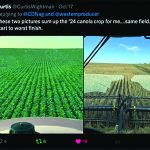
A new era for crop genetics
This year marks 50 years since Baldur Stefansson of the University of Manitoba registered Tower, the first canola variety that had oil low in erucic acid and meal low in glucosinolates. Stefansson couldn’t have predicted in 1974 the juggernaut the western Canadian canola industry would become. Other stories in the Canola Yearbook 2024: This year, […] Read more
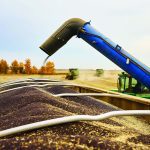
Shrinking production estimate supports canola bids
Canada loses market share to Australia in traditional markets such as Japan, Mexico and the European Union
Canola futures traded in the range of $600 to $700 per tonne for the first 10 months of 2024. It was a wild ride with fund managers holding the reins. They held a net short position in canola futures the entire time, keeping a lid on prices. Other stories in the Canola Yearbook 2024: Their […] Read more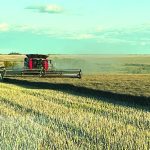
Canola goals must be reassessed to match market reality
Canada’s canola sector is struggling to reach its goal of producing 26 million tonnes of the oilseed by 2025. The current estimate of this year’s canola crop is 18.98 million tonnes, and the sector has failed to make much headway since posting the largest crop ever in 2017 at 21.46 million tonnes. Other stories in […] Read more
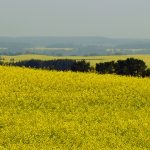
Canola growing season in review
The 2024 canola growing season was a tale of two distinct seasons. The April through June period resulted in a dramatic improvement in growing conditions from the past few years. The July through August period was very stressful and caused yield potential in canola to drop dramatically. The rain during the first half of the […] Read more
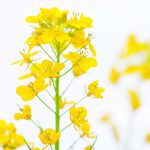
Canola remains a Prairie economic powerhouse
Canola continues to contribute to Canada’s economy in a big way, according to a new study. It generated an estimated $22.54 billion in direct economic activity in 2022-23, which is slightly more than double the impact from a decade earlier. Other stories in the Canola Yearbook 2024: The sector supported more than 60,000 jobs and […] Read more

Bill C-234 ping pongs between Senate and House
Canola growers must identify at least a little with the quote famously attributed to Yogi Berra: It’s déjà vu all over again. At this time last year, they were among the many farmers hoping for Bill C-234 to pass and provide exemptions from carbon pricing for natural gas and propane used to dry grain. Other […] Read more

The future of gene editing in canola
New research could lead to higher-yielding varieties better suited to a warming climate
An unexpected side effect of gene editing research at the University of Guelph could pay dividends for canola breeders in the years ahead. The discovery stemmed from research that began in 2016. The research examined how carbohydrate metabolism is affected in Arabidopsis when substituting one of its genes with the corresponding gene from a corn […] Read more





